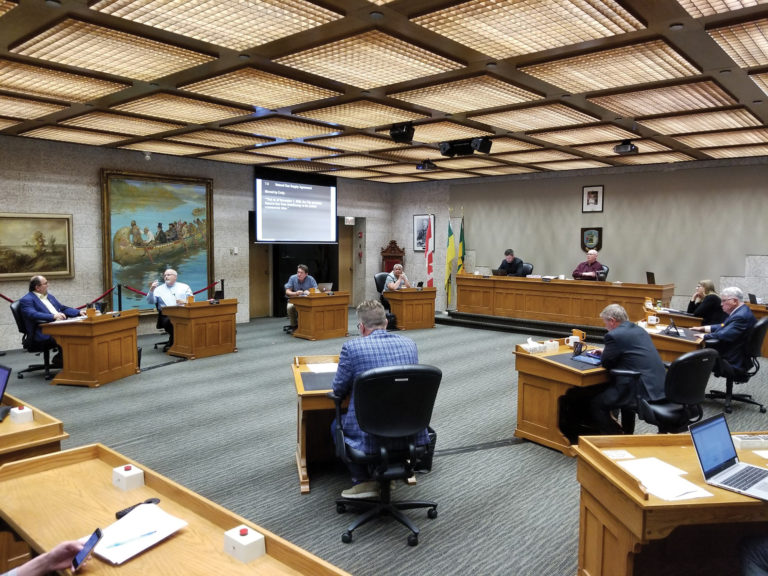
Prince Albert city council has rejected a motion that would have capped the number of liquor stores and off-sales operating inside the city.
Council already passed a similar bylaw aimed at cannabis retailers, limiting the city to three. Prince Albert currently has 10 liquor stores in operation, with two more unused licences in circulation.
Ward 3 Coun. Evert Botha brought the motion forward during Monday’s council meeting. Botha was also a strong supporter of the decision to limit cannabis stores, and was disappointed a bylaw aimed at liquor stores failed to garner the same support.
“Let’s wait and see when the next liquor permit is issued and how this council or the next council is going to deal with that,” he said in an interview following Monday’s meeting. “If we have a restriction of 10, then we have a restriction of 10. If there’s another drive-thru permit attached to a hotel, what are we going to do? If somebody comes to this city with their liquor permit approved by the province, right now it’s wide open.”
Botha said he has no problem with new liquor stores opening up, provided they purchase an existing licence and follow the city’s buffer zone bylaw. That bylaw restricts liquor stores from opening too close to each other, or operating near facilities like schools and daycares.
Botha said city police already deal with hundreds of calls every week due to excessive alcohol consumption, and alcoholism is already a major challenge for the community. If the city wants to put a dent in that problem, he said, it needs to take a serious look at how easy it is to get alcohol.
“We have discussed liquor at length here,” he said during the meeting. “We’ve discussed the hours of operation previously. We don’t know what that magic wand is that’s going to solve the addiction and substance abuse disorder within our community, but the very least we can do as an administration is say, ‘we don’t want more than 10 liquor stores and stand-alone liquor retailors within the City of Prince Albert.’”
Botha’s motion wasn’t a popular one, with all seven councillors and Mayor Greg Dionne voting against it.
Dionne said the City’s buffer zone already made it difficult for liquor stores to open, and added that they couldn’t do anything about the two unused licences.
“The only way you can get a licence … is buying up the existing licences, so even though we say we only want 10, we could get two new ones,” he told council. “They could buy up two of the existing licences, and we can’t stop that.”
Other councillors worried capping the number of liquor stores would limit economic opportunity. Ward 5 Coun. Dennis Ogrodnick pointed to the new development planned in the City’s southeast corner, next to the proposed aquatic and arenas recreation centre, and said hotels or restaurants in that area may want that opportunity.
“Maybe we do need another one there. I don’t know” he said during the meeting. “I’m not promoting it and saying we do, but I don’t think we should restrict it to 10. It’s not going to stop the alcohol problem in this city. Prohibition didn’t do that.”
Ogrodnick said he’d rather see the provincial government determine how many licences the city had.
Ward 2 Coun. Lennox-Zepp echoed those concerns. She said it’s well known that Prince Albert had addictions and substance abuse problems, and council should take a closer look at the issue. However, she also said there wasn’t enough evidence that restricting the purchase of alcohol would help solve the problem.
“Does that cause more social ills, or does it make it a lesser issue? I don’t know the answer to that,” she said during the meeting. “But, there are other cities and North America and there are other countries with a much higher proliferation of liquor sales in their communities … and I’d like evidence on that.”
